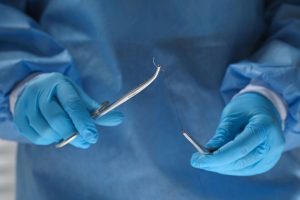Hernia refers to the health condition where an internal organ or tissue bulges through the muscles and tissues that are supposed to surround it. Infection in any part of the body can cause the hernia to occur. Moreover, heavy lifting, poor posture, obesity, or chronic coughing can lead to a hernia as well. Although a person of any age and physique can become a victim of hernia. Living a careful lifestyle,many cases of hernia are avoidable.
What Is a Hernia?
Before diving into how to prevent hernia, it is important to understand what a hernia is. It is a medical condition in which a section of the intestine bulges to an overly stretched part within or outside the muscular walls of the abdomen.
Common Types of Hernias
- Inguinal hernia: Found in the groin; most common type, especially in men.
- Hiatal hernia: Happens when part of the stomach pushes through the diaphragm into the chest cavity.
- Umbilical hernia: Occurs near the belly button; common in infants and overweight adults.
- Incisional hernia: Appears through a scar from abdominal surgery.
Each kind comes with its unique set of symptoms and risk factors; however, there is a notable overlap in the methods of prevention.
Maintain a Healthy Body Weight
Obesity is one of the primary risk factors for developing hernias, especially inguinal and umbilical types. Excess abdominal fat puts continuous pressure on your core muscles, weakening them over time and making it easier for tissue to push through.
How to prevent hernia with weight control
- Strategically plan a diet focusing on fruits, vegetables, lean protein, and whole grains.
- Stay away from processed and high-fat foods that induce weight gain and worsen digestion.
- Plan for moderate exercise, for no less than 30 minutes, on most days of the week.
- If weight loss has been a challenge, make sure to consult a nutritionist or fitness coach.
Practice Proper Lifting Techniques
One of the most common triggers for a hernia is lifting heavy objects incorrectly. Whether it’s gym weights or moving furniture, sudden abdominal strain can cause a muscle tear or weakness.
Tips on how to prevent hernia while lifting
- Bend your knees, not your waist, when lifting.
- Keep the object close to your body.
- Tighten your core muscles while lifting to support your abdomen.
- Avoid twisting your torso while carrying weight.
- If something feels too heavy, ask for help.
Strengthen Your Core Muscles
A strong core prevents hernias since it surrounds and supports the internal organs alongside the abdominal wall. Prevention-focused workouts that strengthen rather than bulk the core are especially useful.
Core exercises that help prevent hernia
- Planks
- Bridges
- Leg lifts
- Bird-dogs
- Pelvic tilts
Avoid high-impact or straining exercises that put pressure on the abdomen (like heavy deadlifts) unless you’re under professional supervision.
Prevent and Treat Constipation
Chronic constipation is known to make one strain while having bowel movements, which causes increased pressure on the abdominal wall and can lead to the formation of hernias, especially in the lower abdomen.
How to prevent hernia by improving digestion
- Drink plenty of water (8–10 glasses per day).
- Eat a high-fiber diet (including oats, beans, flaxseeds, and fruits).
- Stay physically active to keep your bowel movements regular.
- Avoid delaying the urge to use the bathroom.
If constipation persists, go to a doctor; don’t rely on laxatives, as some of them may weaken the muscles of the digestive system.
Manage Chronic Coughs or Respiratory Issues
Coughing is another lesser-known reason for hernias. Some conditions like chronic bronchitis, smoking, and allergies can make you cough a lot, leading to high abdominal pressure and stressing weak abdominal muscles.
How to prevent hernia by addressing cough
- Quit smoking—tobacco weakens connective tissue and lungs.
- Use prescribed inhalers or allergy meds if you have asthma or sinus issues.
- Stay hydrated and avoid dry air.
- Seek medical attention for any chronic respiratory condition.
Avoid Heavy Meals and Acid Reflux
There is a strong correlation of hiatal hernias with acid reflux, overeating, and obesity. Heavily loaded meals increase abdominal and diaphragm pressure, especially while lying down right afterward.
How to prevent hernia of the hiatal type
- Eat smaller, more frequent meals instead of large ones.
- Don’t lie down or bend over for 2–3 hours after eating.
- Elevate your head while sleeping to avoid nighttime reflux.
- Limit spicy foods, caffeine, and alcohol.
If you’re prone to acid reflux, managing your diet can significantly reduce your risk.
Wear Supportive Clothing or Gear
If your work entails physical activity or standing for longer periods, abdominal support belts or compression garments may offer your lower abdomen support. While it is not a long-term solution, it always helps to offer an extra layer of protection during heavy tasks.
Be Mindful Post-Surgery
If you’ve had abdominal surgery (like a C-section or appendectomy), you’re at higher risk for an incisional hernia. The surgical site takes time to heal, and stress or pressure during recovery can cause complications.
How to prevent hernia after surgery
- You rigidly obey the postoperative directives given by the surgery-performing physician.
- Do not lift, bend or strain anything during recovery.
- In case of coughing or sneezing, aid your sore spot with a sneeze or cough (preferably with a pillow).
- Attending each of the follow-up sessions necessary to evaluate healing.
Regular Check-Ups and Early Detection
Despite all possible preventive measures being set in place, some may still develop due to factors such as genetics or age. This is why having medical checkup sessions ingrained in your schedule is important, especially with signs such as having an ache in the stomach area, discomfort when performing bending movements, or a nauseating bloated feeling.
Early signs to watch for
- A bulge which tends to numb when lying flat
- Groin or stomach pain when lifting or when coughing
- A burning or soreness at the area where the bulge is visible
If hernias are managed early, complications, like strangulation where the blood flow to the tissue is cut off, can be avoided.
Conclusion
Learning how to prevent hernia doesn’t require extreme measures. Making a few simple lifestyle changes, such as proper lifting techniques, mindful eating, weight management, and engaging the midsection, goes a long way.
It is important to emphasize that while it is common for people to have a hernia, it is not something that is bound to happen. It is always better to prevent such issues than to manage them, especially when surgical repairs are required. Pay attention to your body, take actions in good time, and bolster your abdominal health with careful consideration.










